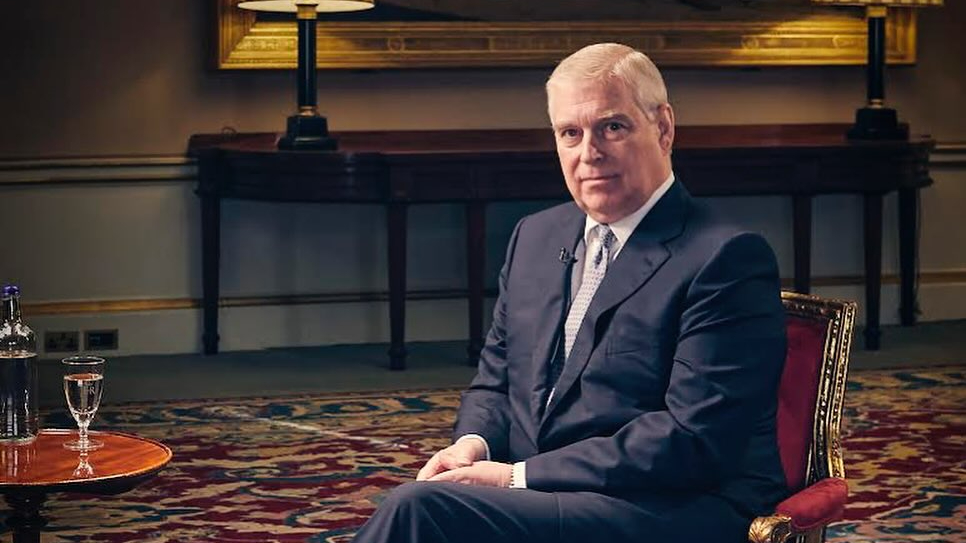Yang Tengbo: Alleged Chinese Spy and His Controversial Ties to Prince Andrew
Yang Tengbo, a 50-year-old businessman, has become a central figure in a growing controversy that has captivated the UK, with the allegations suggesting that he may be involved in espionage on behalf of the Chinese government. In connection to these claims, Yang’s relationship with Prince Andrew has added further intrigue to an already complex situation. Despite the gravity of these allegations, Yang has firmly denied any wrongdoing, labeling the accusations as "entirely untrue." However, the UK government’s decision to bar him from entering the country has prompted intense debate over national security concerns and the broader geopolitical implications of his case.
This article delves into Yang Tengbo’s background, the specific accusations levied against him, his association with Prince Andrew, and the wider implications for the UK’s diplomatic and security landscape.
Who is Yang Tengbo?
Yang Tengbo was born in 1974 in China. His career trajectory began in the public sector, where he worked as a junior civil servant after completing his education in China. He later moved to the United Kingdom in 2002 to pursue a master's degree in public administration and public policy at the University of York. This educational background paved the way for his transition into the private sector, where he founded a consultancy firm in 2005 that focused on Chinese investments.
Over the years, Yang built a reputation for organizing high-profile events linked to Chinese interests in the UK. His consultancy firm quickly became a significant player in facilitating business exchanges between China and the UK, further bolstering his network of influential contacts in both business and politics. However, it is his alleged association with the Chinese Communist Party (CCP) and the United Front Work Department (UFWD) that has come to the forefront in recent years, leading to growing concerns about his possible involvement in espionage.
The Allegations Against Yang Tengbo:
The controversy surrounding Yang reached a boiling point in 2021, when he was detained under the UK’s Counter-Terrorism and Border Security Act. During this investigation, authorities reportedly found communications on his phone and computer suggesting a link to the UFWD, an organization widely seen as a covert arm of the Chinese government that seeks to influence Chinese communities abroad and promote Beijing's policies globally.
In response to these findings, the UK Home Office decided to ban Yang from entering the country, citing national security concerns. The Home Office’s ruling was based on evidence that allegedly showed Yang’s ties to the UFWD, an organization that operates under the auspices of the Chinese Communist Party to exert political influence internationally. This led to the UK's decision to label Yang as a potential security risk.
Yang has vehemently denied these claims, insisting that he has never engaged in any illegal or espionage-related activities. "I have done nothing wrong or unlawful," he declared, arguing that the claims against him were based on political motivations rather than solid evidence. He further pointed out that he had never been shown the full extent of the evidence against him, a situation that he claims is unjust, as he has been denied the opportunity to properly defend himself.
Yang also contested the lack of transparency in the investigation, pointing out that many decisions were made in closed hearings where evidence was withheld from him. "This process has been fundamentally unfair," he said, referring to the hearings as a "blind shot at a hidden target," where the evidence was not fully disclosed.
Yang Tengbo’s Connection to Prince Andrew:
One of the most controversial aspects of the case is the relationship between Yang Tengbo and Prince Andrew. According to the UK’s Special Immigration Appeals Commission (SIAC), which ruled to uphold the ban on Yang’s entry, he was said to be a close associate of Prince Andrew. It was suggested that Yang had represented the Prince at events in China, acting as an intermediary for investors and business leaders.
This relationship has raised eyebrows not only because of Yang's alleged links to the Chinese government but also due to the sensitive nature of Prince Andrew's own public image. The Prince, who is already embroiled in controversies related to his association with convicted sex offender Jeffrey Epstein, now faces further scrutiny due to his reported connections with a figure accused of being a Chinese spy.
Yang's alleged access to Prince Andrew and his network within the royal circle reportedly enabled him to attend high-profile events at Buckingham Palace and other royal residences. He also met with former UK Prime Minister David Cameron and ex-Prime Minister Theresa May at formal events in Downing Street, which he documented through photographs. These meetings, which occurred over the past 15 years, have raised questions about the nature of Yang’s influence and whether his connections were used to further his own business interests.
The Political Dimensions of the Case:
Yang Tengbo’s case has taken on broader political overtones, particularly in the context of UK-China relations. At the heart of the matter is the shifting diplomatic landscape, which has seen relations between the UK and China fluctuate over time. When diplomatic ties are strong and Chinese investment is encouraged, figures like Yang Tengbo have been welcomed in the UK. However, when these relations sour, individuals with links to China face heightened scrutiny, and anti-China sentiments emerge, as is the case with Yang.
Yang himself has pointed out that his exclusion from the UK is a result of changing political climates. He argued that when diplomatic relations are positive, figures like him are treated as allies, but when tensions rise, they are targeted as potential threats to national security. "I have become a casualty of this change," he lamented, further emphasizing the politically charged nature of his case.
The UK government’s decision to bar Yang from entering the country has not only raised questions about national security but has also prompted debates over the fairness and transparency of the legal process. The use of closed hearings and undisclosed evidence has fueled concerns that Yang’s case may be politically motivated, particularly at a time when anti-China sentiment is on the rise in Western countries.
Yang’s Legal Battle and Future Prospects:
Yang Tengbo is continuing his legal battle to clear his name and gain permission to return to the UK. His legal team has filed an appeal with the Special Immigration Appeals Commission (SIAC), arguing that the evidence against him is insufficient and that the ruling was unjust. Yang has insisted that the decision was made based on incomplete and inaccurate information and that he should not be permanently banned from entering the UK based on such flimsy grounds.
The case has highlighted the challenges faced by individuals in politically sensitive situations, especially when their actions are scrutinized against the backdrop of global tensions and national security concerns. While Yang’s future in the UK remains uncertain, his defense against the allegations is likely to continue drawing attention.
Implications for Prince Andrew and the Royal Family:
The connection between Yang and Prince Andrew has sparked further controversy, given the Prince's already tarnished reputation. As a member of the Royal Family, Prince Andrew has historically maintained a distance from business and political activities. However, Yang’s alleged role in representing him to Chinese investors complicates this picture, especially when considering the national security implications.
For Prince Andrew, the accusations against Yang could add another layer of public scrutiny. With the Prince’s ties to controversial figures already a subject of media focus, this latest revelation about his association with someone accused of espionage could further damage his public image.
For the Royal Family, the situation underscores the delicate balance between diplomacy, security, and public perception. While the Royal Family has often played a symbolic role in UK-China relations, any involvement in sensitive geopolitical matters can have significant repercussions.
Related: Prince William’s ITV Documentary: Can We End Homelessness?
The case of Yang Tengbo, a businessman accused of being a Chinese spy, is far from straightforward. With national security concerns at the heart of the matter, questions remain about the fairness of the legal process, the strength of the evidence, and the political motivations behind his exclusion from the UK.
As the story unfolds, the implications are far-reaching—not just for Yang but also for Prince Andrew and the UK’s broader foreign policy towards China. While Yang continues to fight to clear his name, the attention on his case highlights the complexities of modern international relations, where business, politics, and national security often intersect in unpredictable ways.









